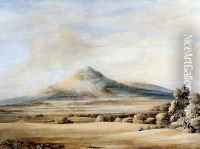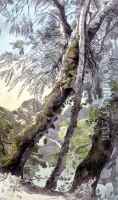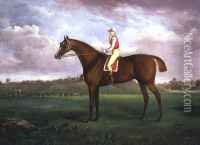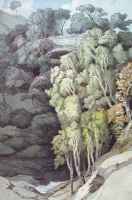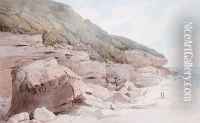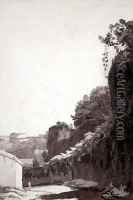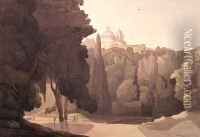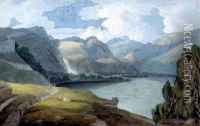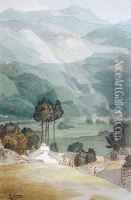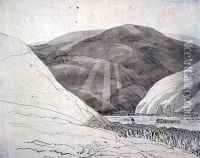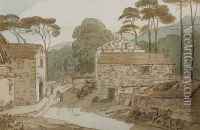Francis Towne Paintings
Francis Towne was an English watercolour landscape painter, born in 1739 in Isleworth, Middlesex, England. His early life and training are not extensively documented, but it is known that he was apprenticed to a leading coach painter in London, Thomas Brookshead, around 1752. This early exposure to painting laid the foundation for his artistic development, though his later work moved significantly away from coach painting towards landscape art. In 1759, Towne moved to London to pursue his career further, and by the 1760s, he had begun to establish himself as a landscape painter.
Towne is particularly renowned for his distinctive style of watercolour painting. Unlike many of his contemporaries who used watercolours in a more traditional manner, Towne developed a unique approach that involved outlining his subjects in ink before applying watercolour. This technique gave his works a remarkable clarity and an almost graphic quality, setting his landscapes apart from those of his peers. Despite his innovative style, Towne struggled to gain acceptance from the mainstream art institutions of his time, notably being rejected by the Royal Academy on multiple occasions.
One of the pivotal moments in Towne's career was his tour to Italy in 1780-1781, where he visited Rome, Tivoli, Naples, and other Italian cities. The sketches and paintings he produced during this trip are considered some of his finest works, capturing the Italian landscape with a freshness and perspective that were quite ahead of his time. These Italian works, however, did not receive the recognition they deserved during his lifetime, and much of Towne's work remained relatively unknown until the 20th century.
Towne's later years were spent in Exeter, where he moved in 1781, and he continued to paint and teach until his death in 1816. It was only posthumously that Towne's contributions to the art of watercolour painting were fully appreciated. His works, characterized by their innovative use of line and colour, have been recognized for their influence on the development of British landscape painting, particularly in the context of the picturesque and the sublime. Today, Francis Towne is celebrated as a significant figure in the history of British art, with his works featured in major collections and museums around the world.
